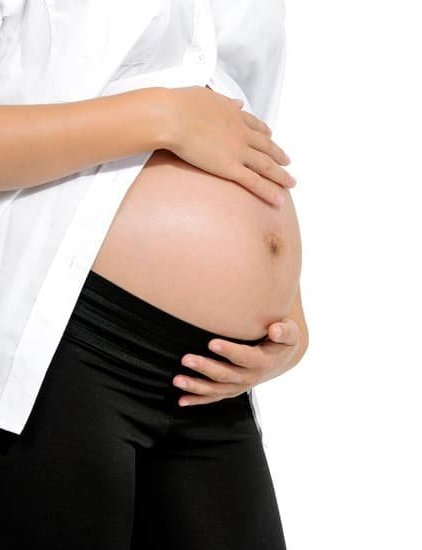Pregnancy acne, also known as hormonal acne, is a common skin concern for many expecting mothers. This type of acne can be triggered by the hormonal changes that occur during pregnancy, leading to an increase in oil production and potential breakouts. In this article, we will explore the causes and triggers of pregnancy acne, as well as effective ways to manage and treat this skincare concern.
During pregnancy, hormonal changes can have a significant impact on the skin. These fluctuations in hormone levels can lead to an overproduction of sebum, which can clog pores and result in acne breakouts. Understanding the effects of these hormonal changes on the skin is essential for developing a safe and effective skincare routine to manage pregnancy acne.
In addition to exploring the causes of pregnancy acne, we will also debunk common myths and misconceptions surrounding this skincare concern. By understanding the truth behind these myths, expecting mothers can make informed decisions about how to best care for their skin during pregnancy. Stay tuned as we delve into safe and effective skincare routines, professional treatment options, tips for managing flare-ups, lifestyle changes, and the importance of self-care during pregnancy amidst acne concerns.
Effects of Hormonal Changes on Skin During Pregnancy
During pregnancy, women experience a significant increase in hormone levels, particularly progesterone. This surge in hormones can lead to a variety of changes in the body, including changes in the skin.
One common effect of hormonal changes during pregnancy is the development or exacerbation of acne, commonly known as pregnancy acne. Pregnancy acne can occur even if a woman has never had issues with acne before, and for those who have struggled with acne in the past, it may become more severe during pregnancy.
The hormonal changes that occur during pregnancy can increase the production of sebum, the oil that lubricates the skin. This excess sebum can clog pores and create an environment where bacteria thrive, leading to breakouts. Additionally, increased hormone levels can also cause an overproduction of skin cells, which can further contribute to clogged pores and acne development.
It’s important to note that not all pregnant women will experience pregnancy acne, and for those who do, the severity can vary widely. Some women may only notice a few blemishes here and there, while others may experience widespread outbreaks. Regardless of the severity, understanding how hormonal changes impact the skin during pregnancy is crucial for effectively managing and treating pregnancy acne.
| Effect | Pregnancy Acne |
|---|---|
| Cause | Increase in hormone levels |
| Impact on skin | Excess sebum production and overproduction of skin cells leading to breakouts |
Common Myths and Misconceptions About Pregnancy Acne
Pregnancy acne is a common skin condition that affects many expectant mothers. However, there are several myths and misconceptions surrounding this issue that can lead to confusion and misinformation. One of the most common myths is that pregnancy acne will only occur in women who have previously had acne before pregnancy. This is not true, as hormonal changes during pregnancy can cause acne even in women who have never experienced it before.
Another misconception about pregnancy acne is that it means you are having a girl. This old wives’ tale has no scientific basis, and the gender of the baby has no impact on whether or not a woman will experience acne during pregnancy.
Additionally, some people believe that using skincare products or makeup can worsen pregnancy acne, leading to the misconception that all topical products should be avoided during this time. In reality, there are safe and effective skincare routines and products that can help manage pregnancy acne without harming the fetus.
It’s also important to debunk the myth that pregnancy acne will disappear immediately after giving birth. While hormonal changes postpartum may improve the condition for some women, others may continue to struggle with acne even after childbirth. Understanding these myths and misconceptions is crucial for expectant mothers so they can take proactive steps to manage and treat their pregnancy acne effectively.
| Myth/Misconception | Truth |
|---|---|
| Pregnancy acne only occurs in women who had it before | Hormonal changes during pregnancy can cause acne in anyone |
| Pregnancy acne indicates having a girl | Gender of the baby does not affect whether a woman will experience pregnancy acne |
| Using skincare products worsens pregnancy acne | Safe and effective skincare routines and products exist to manage pregnancy acne safely |
Safe and Effective Skincare Routine for Pregnancy Acne
During pregnancy, hormonal changes can lead to an increase in oil production, which can result in pregnancy acne. It is important to establish a safe and effective skincare routine to help manage and minimize the impact of acne during this time. By understanding the specific needs of your skin during pregnancy, you can make informed choices about products and treatments that are both safe for you and your baby.
Choosing Pregnancy-Safe Products
When dealing with pregnancy acne, it is crucial to look for skincare products that are free from harmful ingredients such as retinoids, salicylic acid, and benzoyl peroxide. Instead, opt for gentle cleansers, moisturizers, and sunscreen that are labeled as “pregnancy-safe” or “pregnancy-friendly.” Incorporating natural ingredients like tea tree oil or witch hazel can also offer benefits without posing any risks to your pregnancy.
Establishing a Consistent Routine
Consistency is key when it comes to managing pregnancy acne. Establishing a daily skincare routine that includes gentle cleansing, moisturizing, and sun protection can help keep breakouts at bay. It is important to cleanse your face twice a day with a mild, non-drying cleanser to remove excess oil and impurities. Following up with a lightweight, non-comedogenic moisturizer will help maintain skin hydration without clogging pores.
Gentle Exfoliation and Spot Treatments
Incorporating gentle exfoliation once or twice a week can help unclog pores and promote cell turnover, reducing the likelihood of developing new breakouts. However, it is essential to avoid harsh exfoliants or scrubs that may irritate the skin. For spot treatments, consider using natural remedies like diluted apple cider vinegar as a toner or applying cold compresses to reduce inflammation without introducing potentially harmful chemicals into your skincare routine.
Professional Treatment Options for Pregnancy Acne
During pregnancy, it’s crucial for women to feel their best, and struggling with pregnancy acne can be a major source of stress. While some may find relief with at-home skincare routines, others may require professional treatment options for their pregnancy acne.
It’s important to note that not all acne treatments are safe during pregnancy, as certain medications and procedures can pose risks to the baby. Therefore, it’s essential for expectant mothers to consult with a dermatologist or healthcare provider before starting any professional acne treatment.
Topical Treatments
One of the most common professional treatment options for pregnancy acne is the use of topical treatments. These products are applied directly to the skin and often contain ingredients like azelaic acid or topical antibiotics that are considered safe for use during pregnancy. However, it’s crucial to consult with a healthcare provider before using any topical treatment to ensure its safety.
Laser Therapy
In some cases, laser therapy may be recommended as a professional treatment option for pregnancy acne. This non-invasive procedure targets and reduces acne-causing bacteria and inflammation without posing significant risks to the mother or baby. However, it’s important for pregnant women considering laser therapy to thoroughly discuss the potential risks and benefits with a qualified healthcare provider before proceeding.
Chemical Peels
Chemical peels can also be used as a professional treatment option for pregnancy acne under the guidance of a dermatologist. These peels contain safe ingredients that help exfoliate the skin and reduce acne-related blemishes. However, pregnant women should proceed with caution and seek approval from their healthcare provider before undergoing chemical peel treatments due to potential risks involved.
Overall, while there are professional treatment options available for managing pregnancy acne, it’s vital for expectant mothers to prioritize safety and consult with healthcare professionals before pursuing any professional acne treatment.
Tips for Managing Pregnancy Acne Flare-Ups
Pregnancy acne is a common skin concern among expectant mothers, and managing flare-ups can be challenging. However, there are several tips and techniques that can help alleviate the symptoms and reduce the severity of pregnancy acne. Here are some ways to manage pregnancy acne flare-ups:
- Gentle Cleansing: Use a mild, non-abrasive cleanser twice a day to wash your face. Avoid harsh exfoliants or scrubs that can irritate the skin and worsen acne.
- Hydration: Drink plenty of water to keep your skin hydrated from within. Proper hydration can help maintain skin elasticity and promote overall skin health.
- Avoid Over-the-Counter Acne Products: Some over-the-counter acne treatments contain ingredients that may not be safe for use during pregnancy. Consult with your healthcare provider before using any new skincare products.
In addition to these tips, it’s important to establish a consistent skincare routine that focuses on gentle, non-irritating products. This may include moisturizers specifically formulated for pregnant women, as well as sunscreen to protect against potential pigmentation changes caused by sun exposure.
It’s crucial to remember that every pregnancy is different, and what works for one person may not work for another. Consulting with a dermatologist or healthcare provider who specializes in prenatal care can provide personalized recommendations for managing pregnancy acne flare-ups without compromising the health of you or your baby.
Lifestyle Changes to Help Control Pregnancy Acne
During pregnancy, the hormonal changes in a woman’s body can lead to an increase in sebum production, causing pregnancy acne. While it may be challenging to completely prevent acne during this time, there are lifestyle changes that can help control and manage pregnancy acne flare-ups. By making simple adjustments to your daily routine and habits, you can improve the overall health of your skin and reduce the impact of pregnancy acne.
Here are some lifestyle changes that can help control pregnancy acne:
- Maintain a healthy diet: Eating a well-balanced diet rich in fruits, vegetables, and whole grains can contribute to healthier skin. Avoiding processed foods and sugary snacks can also help reduce inflammation that can contribute to acne.
- Stay hydrated: Drinking plenty of water is essential for maintaining clear and healthy skin. Proper hydration helps flush out toxins from the body and supports the skin’s natural balance.
- Manage stress: Stress can exacerbate hormonal imbalances that lead to acne flare-ups. Finding ways to relax and manage stress, such as practicing yoga, meditation, or deep breathing exercises, can have a positive impact on your skin.
- Use gentle skincare products: Opt for mild and non-comedogenic skincare products that are suitable for sensitive skin. Avoid harsh chemicals and exfoliants that can irritate the skin and worsen pregnancy acne.
By incorporating these lifestyle changes into your daily routine, you can effectively control pregnancy acne and promote healthier skin during this special time in your life. Taking care of your overall well-being is crucial for nurturing your skin amidst acne concerns during pregnancy.
The Importance of Self-Care During Pregnancy
Pregnancy is a time of significant hormonal changes, which can often have an impact on the skin, leading to pregnancy acne. It’s important to understand the causes and triggers of pregnancy acne, as well as the effects of hormonal changes on the skin during this time. Many women may also encounter common myths and misconceptions about pregnancy acne, which can lead to confusion and frustration.
Taking care of your skin during pregnancy is essential, and having a safe and effective skincare routine for pregnancy acne can make a significant difference. There are also professional treatment options available for those struggling with more severe cases of pregnancy acne. Additionally, managing flare-ups and making lifestyle changes can help control pregnancy acne.
Despite the challenges that come with dealing with pregnancy acne, it’s crucial to prioritize self-care during this time. Nurturing your skin amidst acne concerns not only benefits your physical well-being, but also contributes to your overall emotional and mental health during pregnancy.
Embracing self-care measures can provide comfort and relief amid the challenges of dealing with pregnancy acne. Taking some time for yourself can be a vital part of navigating the ups and downs of pregnancy while managing skin concerns like pregnancy acne.
Frequently Asked Questions
When Does Pregnancy Acne Start?
Pregnancy acne can start at any point during pregnancy, but it is most common during the first and second trimesters. Hormonal changes can lead to increased oil production, causing breakouts.
How Do I Clear Up Pregnancy Acne?
Clearing up pregnancy acne may involve using gentle, pregnancy-safe skincare products, such as a mild cleanser and oil-free moisturizer. It’s important to avoid harsh ingredients like salicylic acid and retinoids.
What Do Pregnancy Pimples Look Like?
Pregnancy pimples can look similar to regular pimples, appearing as red or inflamed bumps on the skin. Some women may also experience cystic acne during pregnancy, which presents as large, painful nodules under the skin.

Welcome to my fertility blog. This is a space where I will be sharing my experiences as I navigate through the world of fertility treatments, as well as provide information and resources about fertility and pregnancy.





